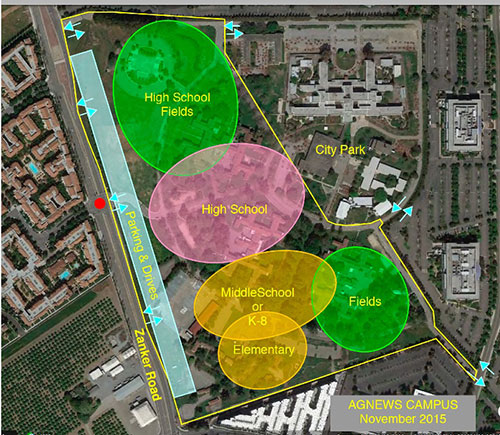
Mission Early College High School Takes Shape – And a New Direction
After 15 years of operation, Santa Clara Unified’s Mission Middle College is ready to take its next step and become an independent high school, Mission Early College High School MECHS). Last month the school board approved a plan that will complete the conversion for the 2017-18 school year. Currently, students enrolled in the program must be enrolled in Santa Clara or Wilcox high schools, and admission is by application only.
For about 30 years educators have been experimenting with allowing high school students enroll in community college classes. The first efforts were targeted at high-achieving students. A big surprise came when the programs were opened to middle- and low-achieving students. Studies across the U.S. indicate that students in these programs overall are more likely to graduate from high school and more likely to be prepared for college work, according to the authors of a 2009 Community College Research Center brief, “Community College and High School Partnerships.”(tinyurl.com/gw5u3fo)
Started in 2001, the Mission Middle College collaboration between Santa Clara Unified and Mission College aimed has offered students an alternative to mainstream high schoolsand their non-education distractions. The program offers a scholarly and serious environment where students can exercise more autonomy in their education, pursue interests in depth and gain college credits.
Initially, MMC was intended to for students who didn’t like the high school social scene or didn’t “fit in.” Instead, it attracted large numbers of students who were academically disengaged – often dismissed by schools as willful “underachievers” – who were just as serious about attending college as AP students with 5.0 GPAs. “The disengaged learner became the archetype of the students that kept on showing up and wanting to be apart of the program,” according to the MMC website.
Many of the students in the MMC program indicated that they would have been more likely to drop out had they not had this opportunity, according to a presentation that was given at a school board meeting in March.
Despite its proven success, going forward it’s not clear if MECHS intends to serve these students in the future, judging by the admissions policy posted on its website.
The new direction is enroll “students who have not had access to the academic preparation needed to meet college readiness standards, or students for whom the cost of college is prohibitive, or students of color, or first generation college-goers, or English learners.” According to the website students can be denied admission because they don’t belong to “any of the demographic populations that are being targeted by MMC for service.”
It’s unclear if this complies with California’s constitutional prohibition against discriminating against, or granting preferential treatment to, individuals and groups on the basis of race, sex, color, ethnicity, or national origin. The WEEKLY hasn’t been able to reach MCC administration to discuss the question.
Three Schools Likely For Agnews Campus
It looks like Santa Clara Unified will build three conventional schools – elementary, middle and high schools – at the new Agnews campus. That’s the preference of community members and the recommendation made by the Facilities Needs Task Force (Task Force) and the District Advisory Committee (DAC), Director of Bond Projects Larry Adams told the Santa Clara Unified Board on Apr. 7.
The next step is hiring an architect, said Adams. The construction is already behind schedule, so the district needs to move quickly. “The district needs at least one – possibly two – full-time project managers for the project, said Adams. “If you want the process to keep moving forward, you needthings [to happen] fast. You need to facilitate that within the organization.”
Currently there are four elementary schools north of 101 – Callejon, Hughes, Mayne and Montague. The only middle school is Callejon, which is a K-8 school, and there are no high schools. Of about 2,500 students attending Northside elementary schools, only about 400 can attend Callejon middle school. The restmust attend Buchser, Cabrillo or Peterson middle schools.
Concern was expressed at a recent meeting that three schools in a single campus would lead to bullying problems. But there’s some evidence that a K-12 campus would have just the opposite effect.
In a 2009 paper, “The School Climate in a K-12 Single-CampusSchool as Perceived by Students, Graduates,Parents, and Teachers,” (tinyurl.com/k12schoolstudy) Albert Lindner found that the connection of the schools – in this case in connected buildings – improved the educational environment.
Lindner noted three findings: the school’s peer-mentoring program benefited all participants; cross-grade activities fostered strong role models; and students, teachers and parents built “exceptional, long-lasting, close personal relationships.”












0 comments